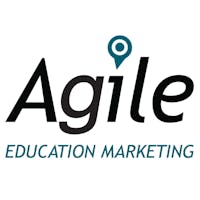Education has been turned upside down in recent months. With the onset of a global pandemic, we have seen a variety of developments from educators. Many worked hard to connect virtually with their students and deliver quality digital instruction. Some seized the opportunity to innovate with personal projects and a deeper learning approach. Most quickly realized the myriad challenges involved in conducting virtual learning experiences while also identifying such key priorities as health and wellness, social-emotional learning and relevance.
A few saw this crisis as a tipping point for an edu-revolution that has been a long time coming. Rather than simply focusing on what school will look like in the fall, they are taking a longer view—envisioning a new educational paradigm.
The term ‘new normal’ has been used repeatedly—and in a decidedly disparaging manner—to describe our current state of affairs. While the ideas presented here may be new, they are a distinct departure from normal.
New Resources
Predictably, one of the earliest and loudest demands in the wake of recent school closures was for quality digital resources. In response, edupreneurs, professional learning organizations and even proactive teachers dutifully compiled their lists. Many are good, and even more are free. But challenges immediately arose: teachers’ technology capacity, student access and parental involvement.
Of course, the resources themselves are not the problem. At issue is whether we have the collective ability to make the pedagogical shift required to effectively adopt and adapt them. With this in mind, the innovative teams at iLEAD Online and Maker Learning Network focused specifically on supporting virtual learning at home. They developed Home Schooling Answers for educators and parents. Their site includes curriculum, project-based learning ideas, independent activities, parent tools, sample schedules, live classes and events—in effect, a full ecosystem for remote learning.
New Models
Most school districts are currently mapping out plans for the fall. Suggestions include a mix of in-person attendance alongside distance learning at home, as well as cohorting students to lower overall numbers in a class or on a campus at any given time. However, a few educational pioneers are seizing on this moment to create something entirely new.
One of the most innovative new approaches is the WorldOver International School. This private, non-profit, global school intends to bring together the best of online learning, project-based pedagogy and social-emotional learning for its first cohorts of grades 6-8 this fall. They plan to focus on what they’re calling the four P’s of learning: project-based, problem-based, place-based and personalized.
School founders envision welcoming a group of international learners who might be artists, athletes, gamers, coders, writers or an endless array of others centered around passions and interests. The students will be challenged to engage in project-based learning that impacts their individual local communities.
New Rules
Over the last few years in education, one of the areas where the rules have been re-written quite a bit is early college, which enables students to obtain college credit while attending high school. Traditionally, students are dual-enrolled in college and high school courses while receiving credit for both. Additionally, there are early or middle college high schools that create a pathway where students can earn their associate degree while completing high school. But early college has now been taken to a whole new level.
Case in point: 19-year-old Tiana Brown just completed her bachelor’s degree debt-free from Southern New Hampshire University. She attends Da Vinci Extension, a free public program through Da Vinci Schools that combines in-person and remote learning in Southern California. Students like Brown complete their four years of high school and then opt into an extension program to earn an associate degree, a bachelor’s degree or a one-year certificate. Brown completed her associate degree in only six months by doubling her class load and then immediately began a bachelor’s program. With mentorship from her coach, she completed her bachelor’s in communications with a concentration in business in just one year, at no cost to her or her family.
The program, which features an unprecedented level of support and personalization, focuses on long-term career and life success. Throughout her high school experience, Brown had a project consultancy with Susan G. Komen, worked with Children’s Hospital Los Angeles, had a paid internship with the 72andSunny Advertising Agency and even held a job as a grounds supervisor at Da Vinci.
New Voices
Amid bold new plans to redesign and redefine education, some are arguing that it’s time to truly consult the stakeholders at a new and deeper level. Change must come from a collaborative effort involving students, parents, teachers and the broader education community.
Voices Of A Learning World is an international group of deeper learning practitioners with a mission to provide a global platform for the diverse voices of youth, parents, educators, business leaders and engaged citizens. They support project-based approaches and wellbeing as key elements of an emerging learning ecosystem that they foresee overtaking industrial models of teaching. Their intent is to clearly illustrate that key decisions about approaches to learning—the what, how, when and why—should be in the hands of students, parents and business partners, rather than experts alone. The group also believes strongly that learning needs to be redefined by the global community engaged in an inclusive global dialogue.
These international voices agree that most recommendations for improving education are still too standards-focused and classroom-based. They advocate for a broader, more authentic, student-centered and personalized type of project-based learning. And unlike many, they view the current pandemic as a welcome disruption to global schooling.
New Horizons
Surely, we’ve only just begun to see the long-term changes in education due to the impact of global economies, technologies and, now, pandemics. While some of us simply hope for a return to normal, many others fervently wish for something completely different. And if the preceding examples are any indication, that wish may soon become a widespread reality. As challenging as the months ahead will be for education, there is reason to believe that exciting new opportunities—for each of us to learn more than ever before—await us.



